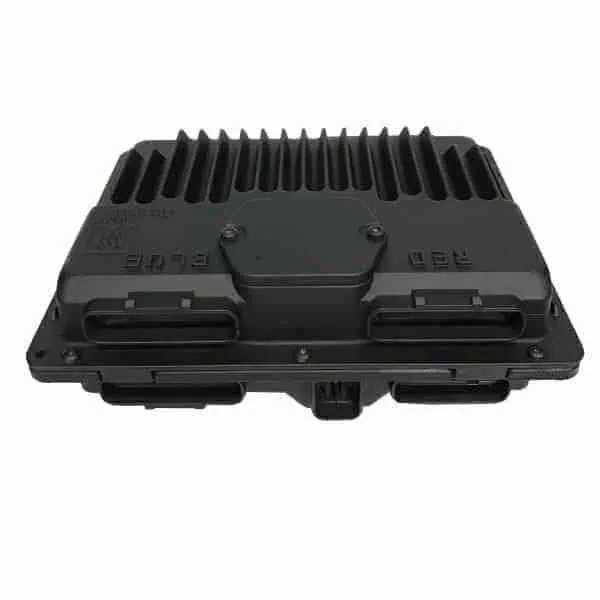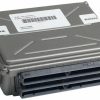Restore Your GM’s Dependability and Power
Is your trusted GM truck, van, or SUV suddenly giving you trouble? Symptoms like a persistent check engine light, rough running, stalling, or a complete no-start condition often point directly to a failing Powertrain Control Module (PCM). Don’t let a faulty computer keep your vehicle sidelined. This genuine OEM engine computer is the reliable, cost-effective solution to get your rig back on the road and running like it should.
Common Symptoms & Your Solution
A failing PCM can cause a cascade of frustrating and confusing problems. If you’re experiencing any of the following, this pre-programmed module is your definitive fix:
- Unexplained Check Engine Light (with codes like P0601, P0605, P0606)
- Vehicle won’t start or is very difficult to start
- Rough idling or stalling
- Noticeable decrease in fuel economy
- Harsh or erratic automatic transmission shifting
- Apparent loss of engine power
This isn’t just a replacement part; it’s a complete solution. We take a quality, road-tested OEM unit and flash it with the latest GM-certified software, specifically matched to your vehicle’s VIN. This ensures perfect communication between the engine, transmission, and all other onboard systems, restoring the smooth, reliable performance you depend on. When you need a dependable fix, our Programmed PCM 9355699 is the answer.
Features & Benefits
- ✔ Get Back on the Road Fast: Arrives programmed to your vehicle’s specific VIN. No extra trip to the dealer needed—it’s ready for a straightforward installation right out of the box.
- ✔ OEM Reliability, Guaranteed Fit: A genuine GM part ensures perfect compatibility and communication with your vehicle’s complex systems, unlike generic aftermarket alternatives.
- ✔ Restore Peak Performance: Corrects common issues like rough idling, poor fuel economy, and false check engine lights caused by a faulty computer.
- ✔ The Correct Part for Your Rig: A direct replacement for multiple service numbers, including 16266645, 16250279, 16258815, and 09366810, ensuring you get the right component the first time.
- ✔ Drive with Confidence: This unit is backed by our one-year replacement warranty.
Expert Insight: The Importance of VIN Programming
For these late-90s GM vehicles, the PCM is the central hub of communication. It’s not just about engine timing; it’s tied into the anti-theft system (Passlock/VATS), transmission controls, and more. Simply swapping in a used computer from another vehicle will almost always result in a no-start condition. By flashing this Programmed PCM 9355699 with your exact VIN, we ensure all the factory settings are correct for your specific engine, transmission, and options package. This critical step prevents frustrating security lockouts and guarantees your vehicle operates exactly as the engineers intended.
Stop guessing and start fixing. This is the most direct path to resolving complex electronic issues and restoring your confidence in your vehicle. With a properly functioning brain, your GM will be ready to tackle the workday, the family trip, and everything in between. Trust in a proven, professionally prepared Programmed PCM 9355699 to get the job done right.
Frequently Asked Questions
How do I provide my VIN?
After you complete your purchase, you will receive instructions on how to send us your 17-digit Vehicle Identification Number (VIN). We must have your VIN to program the module before we can ship your order.
Is any additional programming required after installation?
In most cases, you will need to perform a security relearn procedure after installation. This simple procedure can typically be done without special tools and involves a sequence of key turns. This syncs the new PCM with your vehicle’s existing anti-theft system. Instructions are widely available online for your specific model.
How can I be sure this fits my vehicle?
Please match your part number to 9355699 or one of the alternate numbers listed in the description (e.g., 16266645, 16250279). You can also use the detailed fitment list provided on this page to confirm compatibility with your specific year, make, and model. Providing your VIN during checkout allows us to double-check and ensure a perfect match.
What are the main signs of a failing engine computer?
The most common signs include a check engine light that won’t go away, the engine running rough or misfiring, poor fuel mileage, stalling, and a complete failure to start. Because the PCM controls so many functions, symptoms can vary widely, but these are the most frequent indicators.
What does the one-year replacement warranty cover?
This unit is backed by our one-year replacement warranty. This covers the module itself against failure or defects for one full year from the date of purchase. If the unit fails within this period, we will provide a replacement.


